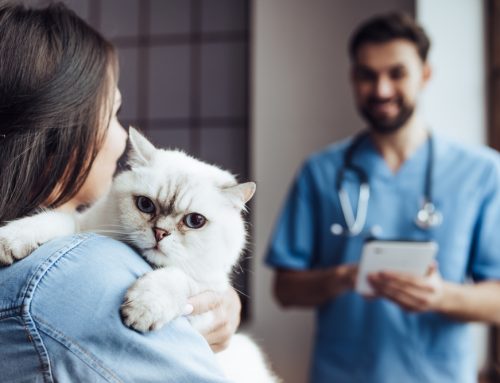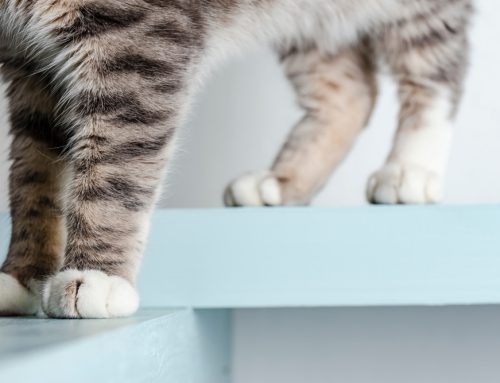As November rolls in and the days get shorter, we get to celebrate one of our favorite observances of the year: Senior Pet Month. Whether your pet has been by your side for a decade or just entered their golden years, this month is the perfect reminder to give them the extra care and comfort they deserve.
Senior pets have so much love to give, and with a few simple tweaks to their routine, you can help them stay comfortable, happy, and thriving all season long.
How to Know Your Pet Is a Senior
Pets age much faster than we do, and they reach “senior” status earlier than many people realize:
- Small-breed dogs: around 7–10 years
- Large-breed dogs: around 5–6 years
- Cats: around 7–10 years
Every pet is unique, but once they hit this range, it’s time to start thinking about senior wellness needs.
The Importance of Senior Wellness Exams
Older pets benefit from twice-yearly checkups, even if they seem perfectly fine. Aging can be sneaky, and conditions like kidney disease, arthritis, diabetes, thyroid disorders, and dental disease often show subtle signs at first.
At every senior visit, your vet may recommend:
- Comprehensive physical exams
- Bloodwork and urinalysis
- X-rays (if needed)
- Joint and mobility assessments
- Weight and nutrition review
These screenings help us catch problems early so your pet stays comfortable and gets the best possible care.
Spotting Common Signs of Aging
Some changes are expected. Others are worth bringing up during your pet’s exam. Keep an eye out for:
- Slowing down or getting tired faster
- Difficulty with stairs or jumping up
- Changes in appetite or thirst
- Weight loss or gain
- Sleeping more
- Cloudy eyes or vision changes
- Stiffness when waking up
- More frequent accidents in the house
- Behavioral changes or confusion
If something feels “off,” trust your gut. You know your pet better than anyone.
Helping Senior Pets Stay Comfortable at Home
Small adjustments can make a huge difference in your pet’s daily life:
1. Support Their Joints
Soft bedding, ramps, non-slip rugs, and joint supplements can help a lot. Discuss with one of our vets which supplements are recommended for your dog or cat.
2. Keep Them Cozy
Senior pets feel the cold more easily. Provide warm sleeping spots, cozy blankets, and avoid letting them spend too much time outside in chilly weather.
3. Adjust Their Exercise
Gentle walks, short play sessions, and low-impact movement keep joints loose without overdoing it.
4. Feed a Senior-Friendly Diet
Senior pets often need foods that support weight control, digestion, kidney health, or joint comfort. A nutrition consult can help pick the perfect match.
5. Enrichment Still Matters
Puzzles, toys, sniff walks, window perches, and gentle mental stimulation keep your pet’s brain sharp and spirits high.
Pain Isn’t “Just Part of Aging”
One of the biggest myths we hear is that slowing down is normal. While aging does bring changes, pain is not normal. Arthritis, dental issues, and chronic conditions can all make a senior pet uncomfortable, even if they hide it well.
If your pet seems stiff or reluctant to do things they used to enjoy, we can help.
Let’s Celebrate Senior Pets Together
These pets have given us years of companionship, laughter, and unconditional love. This November, let’s return the favor by making their golden years as bright and comfortable as possible.
If you have questions about your senior pet or want to schedule a wellness exam, our team is here to help every step of the way.
Call Oak Creek Veterinary Care at 414-301-9113 or schedule your appointment online today!







Leave A Comment